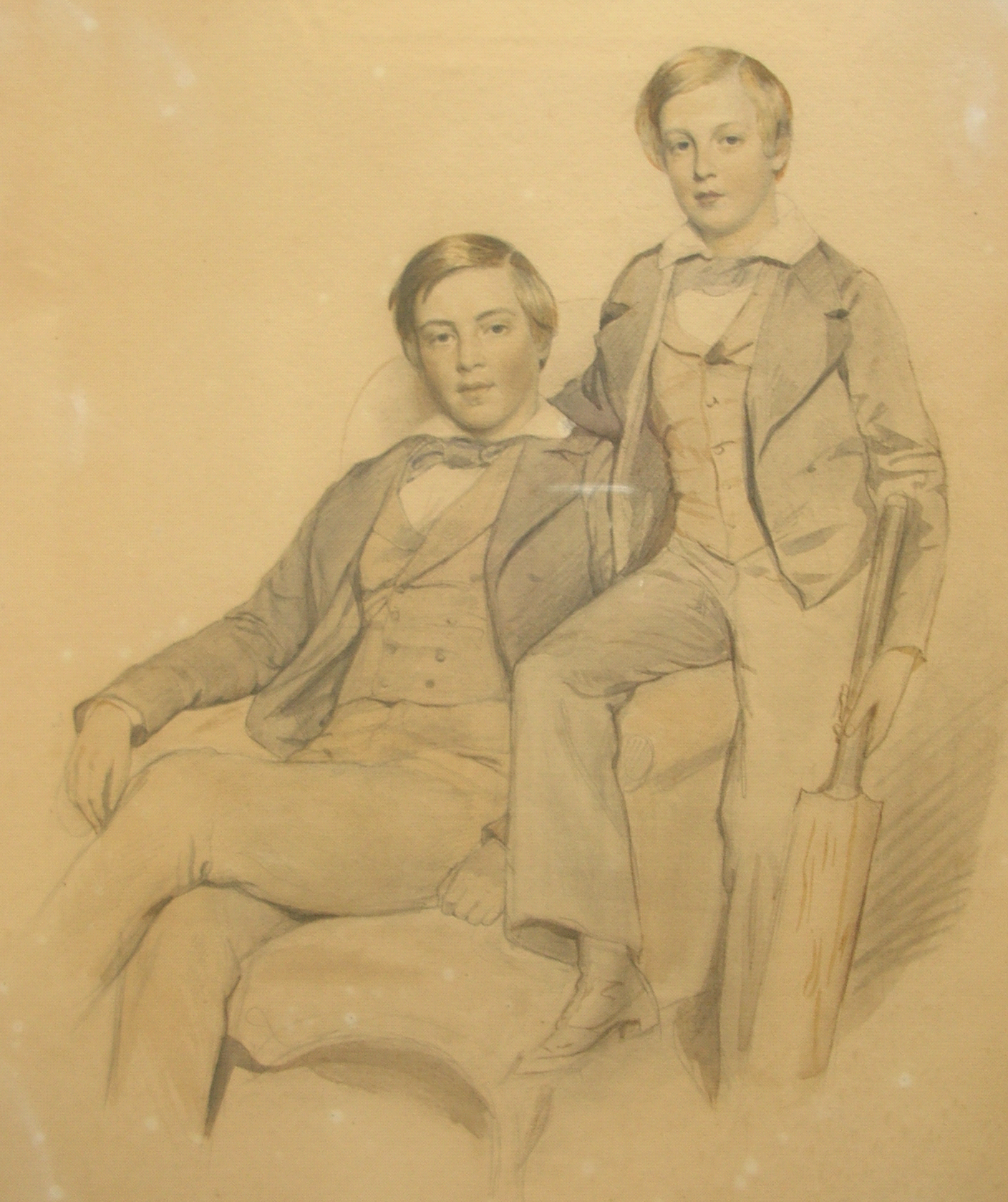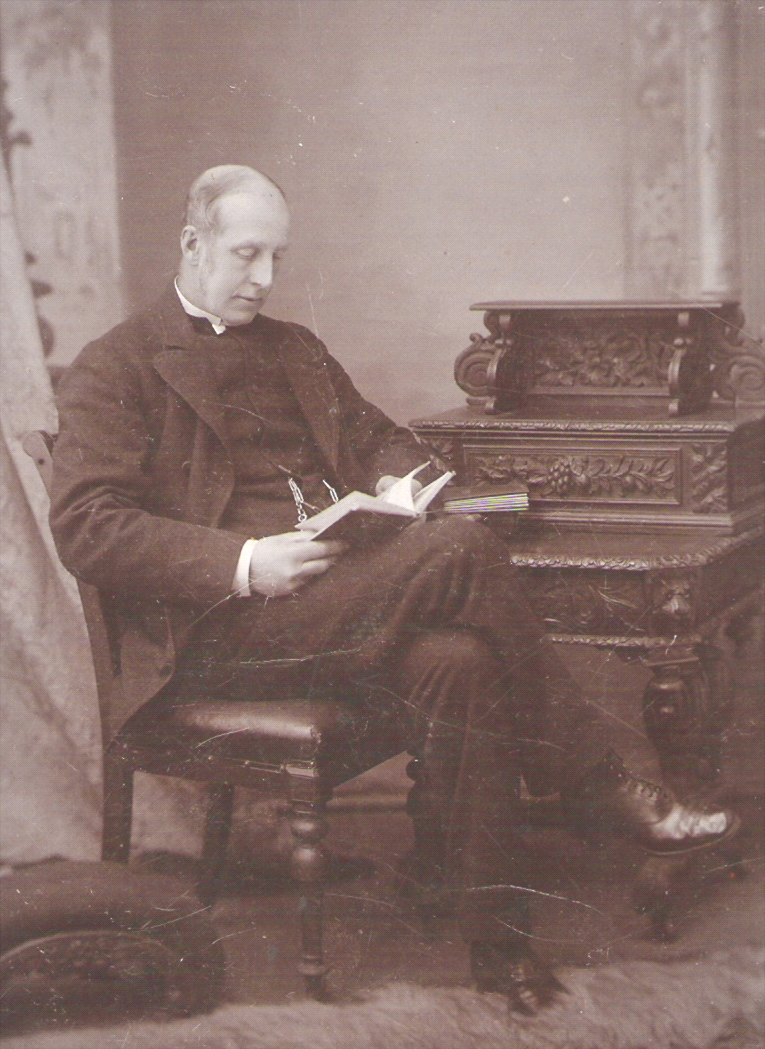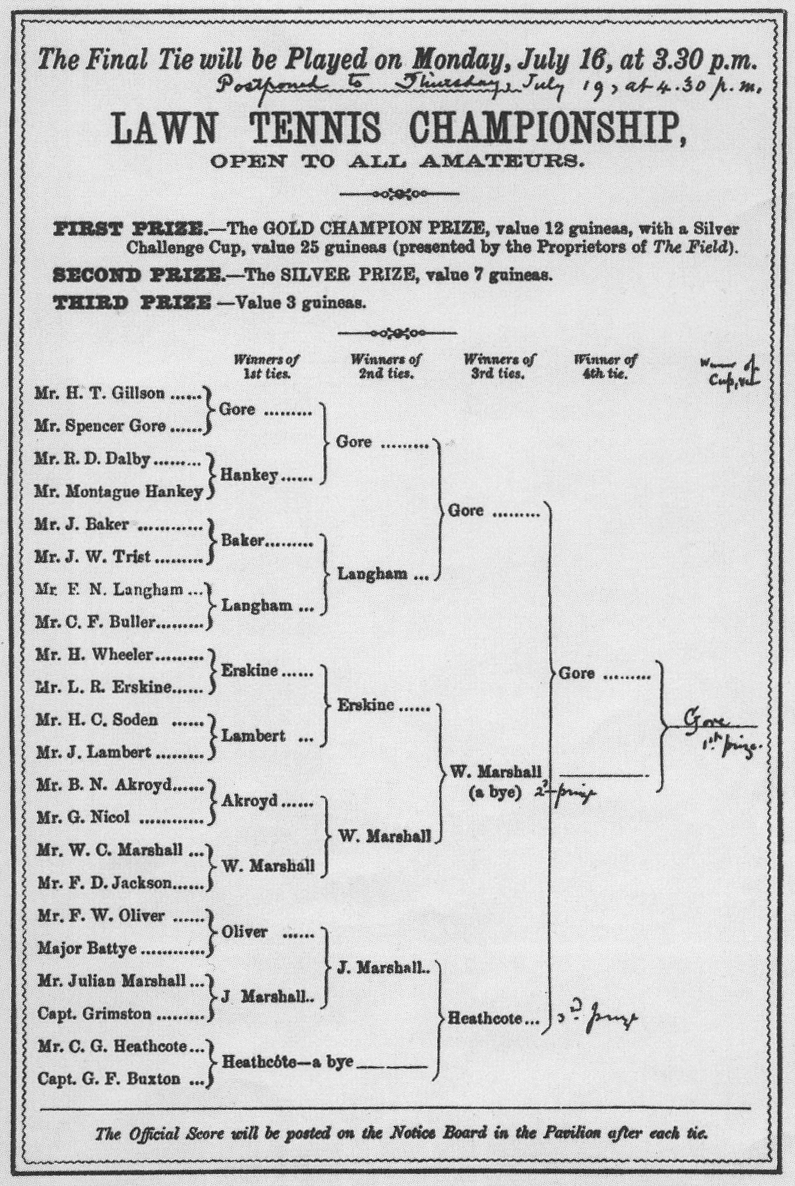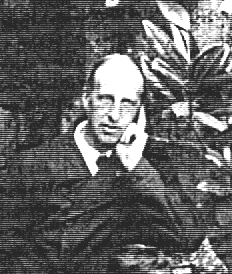Navigation: Hankeys of Churton > John Hankey > Robert Hankey > Robert Hanky > Thomas Hankey > Henry Hankey > Thomas Hankey > Thomas Hankey > Thomas Hankey >
Rev Canon Montagu Hankey (1840-1919)

Ernest and Montagu Hankey at Eton, c.1850
Fifth surviving son of Thomas Hankey, Montagu was born on 16 Aug 1840 and baptised on 1 Oct at Wimbledon. Educated at Eton and Trinity College, Cambridge. Known to his friends as Monty, he was married at Bryanston Square on 11 Nov 1865 to his second cousin Alice Aitcheson Hankey (1843-1916), second daughter of General Hankey; they he had one daughter Ethyl Louisa Hankey (1866-1921), three of whose grand-parents were Hankeys. He also had twin sons, Ernest and Henry Montagu, born in 1868 who both died within three months.

Canon Montagu Hankey

Montagu played in the first ever Wimbledon tennis singles in 1877,
and was beaten in the second round by the eventual winner.
Wikipedia
Montagu had been curate at St Giles in the Fields, a central London parish notorious for over-crowding and every form of human degradation. With this experience behind him the twenty-nine-year-old Montagu found himself dealing with the sewers of Maiden Newton and an over-crowded school on his appointment as Rector of this rural Dorset parish in 1868, a position he held for 44 years. The living was worth £382 a year. He took a particular interest in the management of Maiden Newton School. He was Rural Dean of Bridport 1885-1913; Prebendary of Salisbury 1898-1919; and Proctor in Convocation.

Montagu Hankey’s work at St Mary’s, Maiden Newton included the construction of the present vestry and organ chamber. He reconstructed the chancel, which was a rectorial responsibility, he raised the pitch of the roof, and he placed large stained glass windows in memory of his father, father in law and brother. He subsidised the church accounts when deficits built up and got the lytch gate provided by subscription in 1891. His last gift was to cover the cost of rebuilding the north wall of the churchyard.
The Hankeys lived in a substantial rectory next to the church, with a garden leading down to the River Frome, on the other side of which lay the Rector’s 120 acres of glebe land. The 1881 census shows that their household comprised their fourteen-year-old daughter Ethyl, her Swiss governess and five indoor servants. After 1880, parish registers show them away about a month each year, travel having been made much easier by the arrival of the railway.
Montagu retired from his distinguished incumbency in 1913 and went to live at Dorchester, where his wife died in 1916. He himself died on 25 Aug 1919 at Dorchester and was buried near the south porch of the church at Maiden Newton
Montagu was ‘remembered affectionately by his parishioners as Father Hankey, not because he was a high churchman but a fatherly, kindly, generous man.’ His obituary in the Salisbury Diocesan Gazette says of him: ‘In his rose garden a veritable dream of beauty or at his lathe turning out beautiful and delicate work [mostly of ivory], or discussing all kinds of subjects in his study, or at his notoriously hospitable table, one saw the man of culture, of sanctified knowledge of men and things an attractive personality, an unfailingly kind friend.Thoroughly human, and with wide sympathies and interests, few who met him were not the better for it.